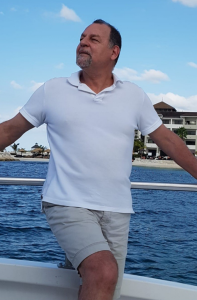Estimated reading time: 4 minutes
This will be my last blog as executive director of PPEC, the environmental council I have run for the past 30 years. Yes, 30 years. Unbelievable how time marches on, isn’t it?
I remember my first day on the job being asked to take the minutes of the board meeting. I knew only two people in the room (the ones who had interviewed me) and had absolutely no idea what these guys were talking about (C flute, Rule 41, corrugators). It was a steep learning curve, but I had some great help along the way from board members, staff, industry colleagues, government folks, environmental activists. A wide range of helpful people, many of them still in regular or occasional contact.
Thirty years ago, packaging was a major political target (things haven’t changed much, have they?) and paper packaging, in particular, was ‘public enemy number one.’ Paper packaging tends to be larger and stand out more; it’s widely used across a broad range of industries and commerce and delivers household goods as well; and somehow it is always captured in stock images of ‘nasty’ landfill. But when you dig deeper, as I did, you quickly discover that it has a great story to tell about sustainability and a circular economy. That’s what I’ve tried to add to, and pass on, over the last 30 years.
I won’t list the council’s many achievements here (there\’s a series of videos on the website) but several were world or North American firsts. Possibly the most significant was leading North America in the further recycling of old cereal and shoe boxes (boxboard). Back in the mid 1980s, this already highly-recycled material ended up in the dump because the fibres were considered too thin and short to be of any further use in papermaking.
Working with brand owners like Lever Brothers, Kellogg’s and Procter & Gamble, and municipalities like Quinte in Southern Ontario, we undertook pilot trials at Strathcona Paper and Paperboard Industries, and developed what we called a food packaging protocol to give the brand owners confidence that re-using residential boxboard in new food packaging would not be a health concern. We then persuaded other mills (Atlantic Packaging, for example) to use old boxboard as filler material in corrugated board. To make a long story short, back in the early 1990s this material went straight to the dump. Today, some 94% of Canadians can recycle it, and those that don’t recycle it can send it on for composting.
Educating people about what has been done, and is being done, is a constant and daunting challenge, and this is possibly more so today with the proliferation of social media and a far looser adherence or ambivalence towards fact-checking. Yes, this bugs me intensely! Whether it’s on forestry or waste issues, recycling or recyclability, please dig for the facts before splurging into print. At the very least, please cite your sources of information so that people can check them out and judge their credibility. Here endeth the rave!

I had planned to do some travel after PPEC, but COVID-19 has put that on hold. COVID-19 has, however, got me into walking/jogging seven kilometres almost every morning, and I am now in better shape than I have been for years. Mental shape too. There’s nothing like an early morning jog/walk to clear your head and think about the next blog, or article, or book you want to write. Yes, I’m working on another book. No surprise, it’s on false and misleading environmental claims! So, if you have some good examples, let me know and I’ll check them out!
In the meantime, PPEC is in good hands with a new executive director coming aboard. Here’s a link to the press release. Please give Rachel your support. Au revoir!

A great job, well done!
Many thanks for your years of service to the cause!
Thanks Paul. Much appreciated.
John
I will miss you so much! You have been such a solid and strong presence in our industry, its really hard to imagine you will not be in the PPEC office. You must be extremely proud of your contribution, our industry is in a better place because of you. I hope you will continue to stay connected in some manner that suits your new adventures.
SOOOOO sad to have you go, but happy you will move on.
Sincerely
Kim
Thanks Kim. I am proud (dammit) and promise to stay connected. Much of what I want to write about impacts the forest and paper industries so I am not going away anywhere soon. And thank you again for your long-time solid support over the years. Appreciate it. John
John, the industry will definitely be a different place without you. You’re knowledge of our industry and all that matters in the world of paper has been stellar and we’ll miss you. Thanks again for all you have done and for all that you have yet to accomplish.
Take care John, and good luck on your new ventures!
Marc
Thanks, Marc, enjoyed your contribution and support over the years.